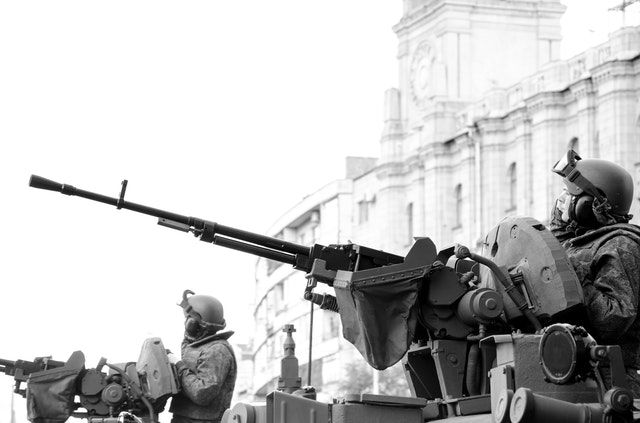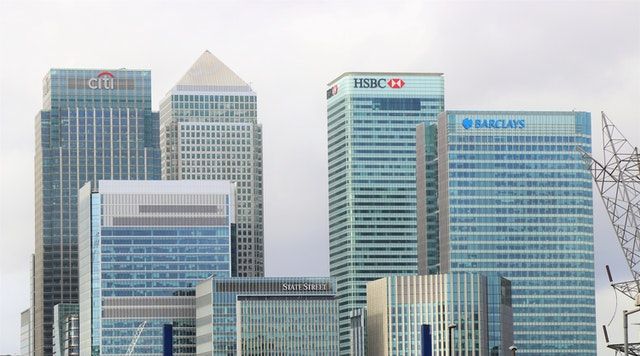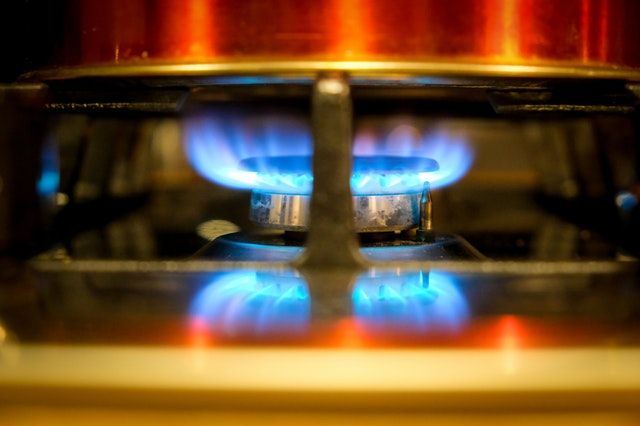As the Russian army continues to press across Ukraine – despite stiff local resistance – and with Western leaders not wanting to commit their own national forces, the only tool remaining to deter Putin’s aggression is an economic war. But how effective will those moves be?
For weeks, politicians from around the world have warned that any aggression into Ukraine by the Russian military would result in severe economic penalties. Now that war has begun, it seems that Putin is calling their bluff.

Certainly, the rhetoric is present at the podium. The UK Prime Minister laying out the ‘largest ever set of sanctions’ to “squeeze Russia from the global economy, piece by piece.” The French PM says France will show ‘no weakness’ on Russia sanctions, and while Germany has halted use of the Nord Stream 2 gas line, the pipe remains open for the original Nord Stream.
The US President Biden, for his part, announced that, “"We will limit Russia's ability to do business in dollars, euros, pounds and yen to be part of the global economy, we're going to limit their ability to do that," the president said. "We're going to stunt the ability to finance and grow the Russian military, and we're going to impair their ability to compete in the high-tech 21st century economy."
This includes sanctions on both Russian President Vladimir Putin and his Foreign Minister Sergei Lavrov. While Uefa has moved the Champions League final from St Petersburg to Paris and Formula 1 has cancelled this season's Russian Grand Prix.
These U.S. sanctions including banning business with Russia’s 10 largest financial institutions—effectively stopping the flow of money between the U.S. market and institutions representing almost 80% of assets in the Russian banking sector.

Specifically, this includes the country’s biggest bank, Sberbank, and 25 of its subsidiaries, as well as VTB Bank, Bank Otkritie, Sovcombank OJSC, and Novikombank.
The U.S. will also apply new debt and equity restrictions on transactions involving the state-owned gas company Gazprom, the financial institution supporting Russia’s agricultural sector, and the Russian Railways train service.
The U.S. has also been backed by South Korea in restricting sales of high-tech equipment such as semi-conductors (South Korea is the world’s largest producer). While this may hit Russians at home by limiting their access to smartphones, games consoles, and televisions. It is also a planned assault on Russian military expansion by restricting communication systems and military hardware. “We estimate that we’ll cut off more than half of Russia’s high-tech imports,” Biden said.
However, it is notable that Western leaders have stopped short of implementing a blockage of so-called SWIFT transfers from Russia.
France's Finance Minister Bruno Le Maire stating that removing Russia from Swift remained an option, but only as a last-resort "financial nuclear weapon". While Biden explained that the “sanctions that we have proposed on all of [Russia’s] banks is of equal consequence—maybe more consequence—than SWIFT.”
However, a more likely reason is, as Time magazine reports, because “European officials reportedly opposed the SWIFT option because it would mean Russian companies and individuals would lose access to their main means of repaying some $30 billion in debts they owe to European lenders.”
In response, Russia has employed various restrictions on Western businesses, such as banning some flights in Russian airspace, while calling the package of sanctions imposed on them as showing the West’s ‘Absolute impotence’ on foreign policy.
However, the biggest sanction that Russia could face would be the ban on exports of gas.
The stopping block for this situation is that the EU is Russia’s best customer when it comes to buying fossil fuels. Particularly Germany has more than one third of its gas supplies coming from Russia, while Italy is also a major importer.

At present, Europe could turn the taps off and survive for some time on their gas reserves alone -especially with demand due to fall with the onset of warmer weather.
But if the conflict continues into next winter, then would Europe be willing to limit industry by hampering their access to gas? Would politicians have the stomach to ration gas to voters’ homes during winter?
In the very long term, many countries are already looking towards being more energy self-sufficient. France for one recently announced a major expansion of nuclear power output over the coming decade. However, the fact that these plans (decided before the conflict began) are due to be complete by 2050 shows that there is no quick fix for the continent’s addiction to Russian gas.
This is something that Putin is well aware of and may mean that he is gambling on European politicians backing down instead hurting their economies or making their voters go cold.
How much do Europeans really care about Ukraine’s plight?
Photo credit: Asim Almanat from Pexels, Magda Ehlers, Expect Best, & Matti